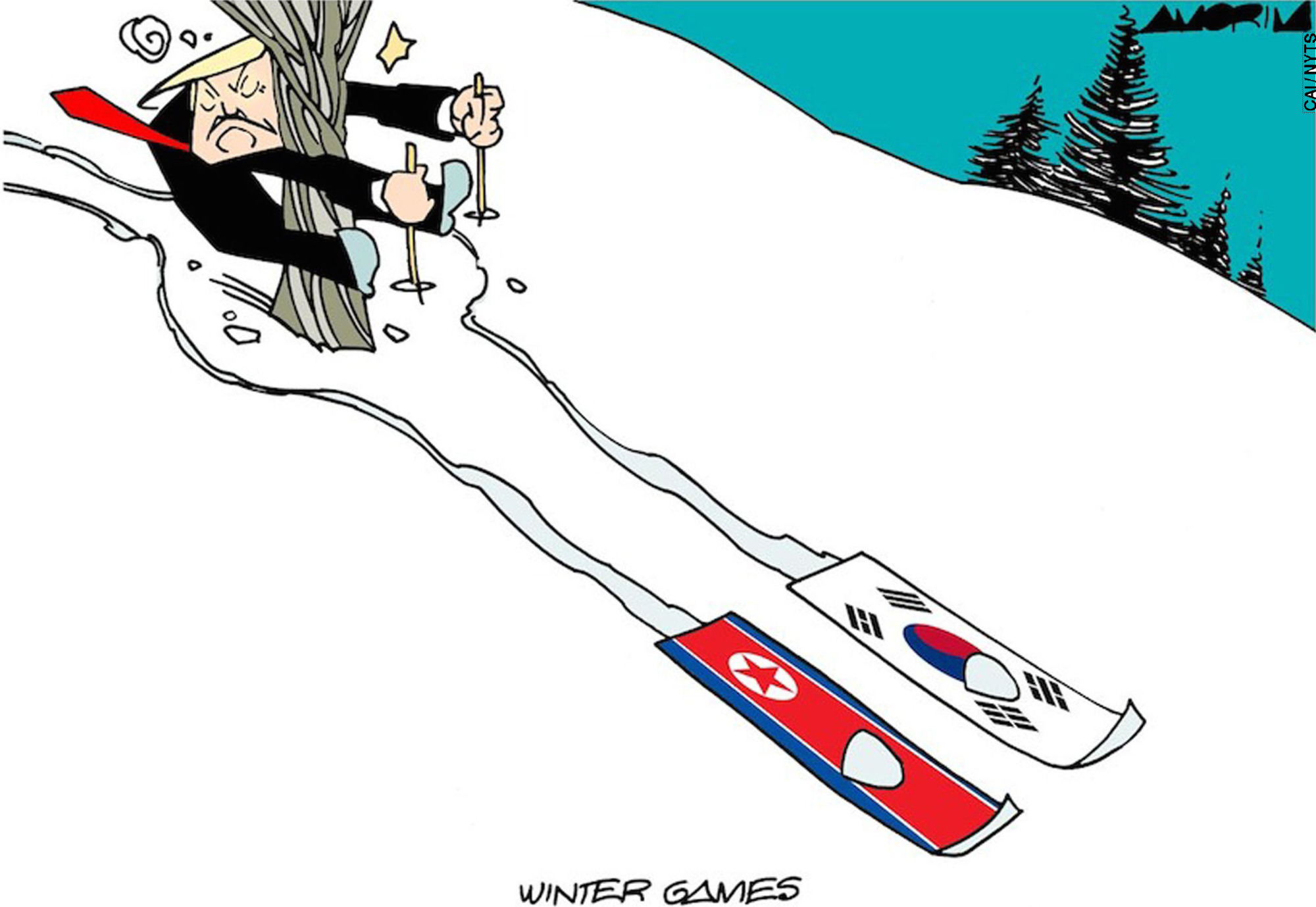North Korea's Olympic athletes didn't bring home any medals, but their participation may have earned the peninsula something more substantial. By taking part so visibly alongside South Korea, Pyongyang has been able to present itself as a credible global and regional power in a way that has eluded North Korean leaders since the war that divided the peninsula. The real strategic winner, however, is the South Korean government, which has shrewdly used the games to reshape the diplomatic landscape.
For all the talk of reconciliation, neither North nor South Korea has much appetite for the compromises — or the catastrophic war — that reunification would take. What both countries have been desperate to do, however, is to blunt the potential threat of a major unilateral U.S. strike on Pyongyang's nuclear facilities.
The potential for renewed dialogue puts Washington in a difficult position. This year, U.S. President Donald Trump's administration had intended to ramp up military pressure on Pyongyang, reinforcing the Kim regime's fears that further nuclear progress might lead to U.S. action. The Olympic rapprochement with the South, however, has compelled Washington to abort some of its plans.



















With your current subscription plan you can comment on stories. However, before writing your first comment, please create a display name in the Profile section of your subscriber account page.